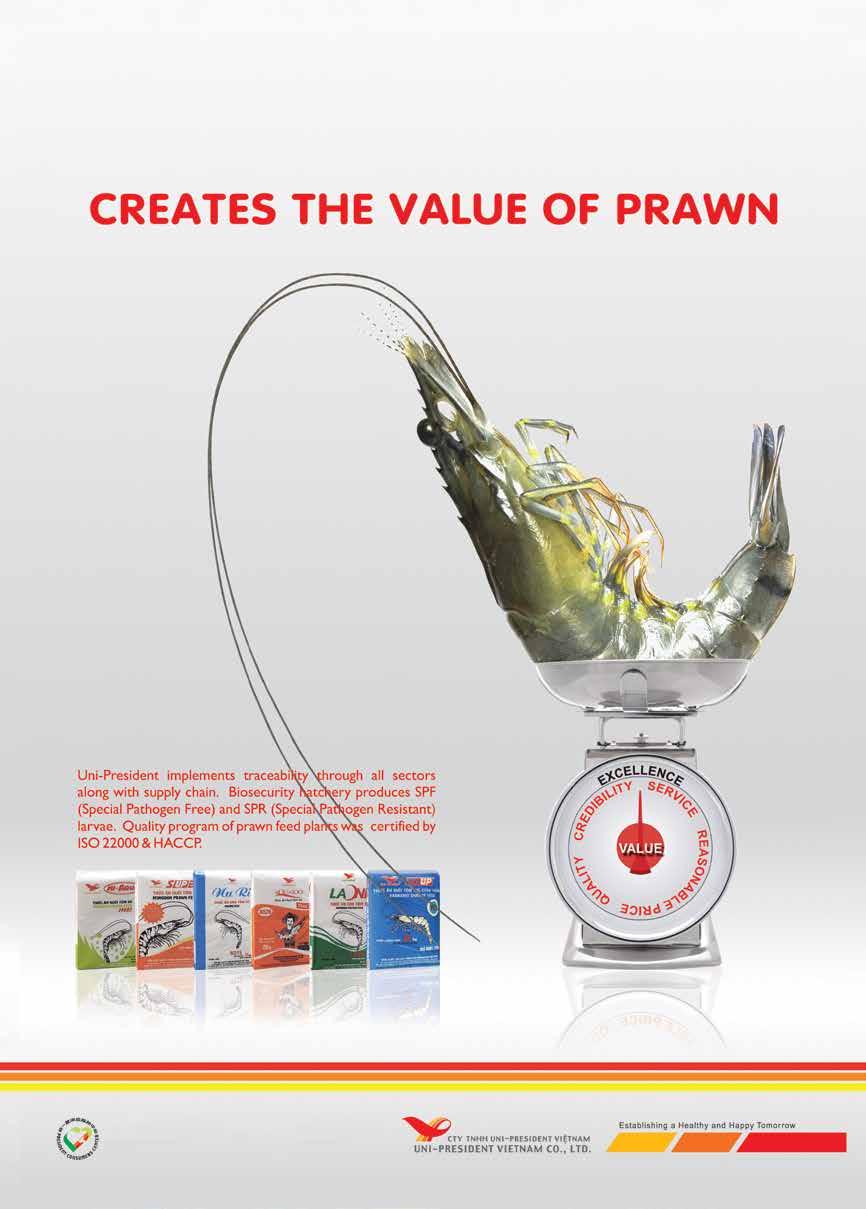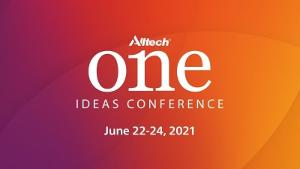
22 minute read
Company & Event News
Insights from agri-food experts and sustainable aquaculture
Over 4 days, from June 21-24, the Alltech ONE Ideas Conference was held virtually to unite thoughtleaders and changemakers for an exploration of the power of science, sustainability and storytelling. Now in its 37th year, Alltech’s flagship event continues to be an invaluable industry resource, with innovative ideas, inspiration and motivation from world-class speakers. Alltech announced that 10,000 attendees from 101 countries had access to a virtual platform to listen to 90 speakers.
“We are on the brink of a new beginning, and I do not believe that is just a new beginning for Alltech. I think it is a new beginning and a new golden era for agri-food, and it is led by what we believe is a bold vision,” said Dr Mark Lyons, President and CEO of Alltech, in his opening remarks. “We want to deliver smarter, more sustainable solutions for our customers and for all of agri-food.”
One of the keynote speakers, Anna Rosling Rönnlund, now Vice President and Head of design and user experience at Gapminder and co-author of “Factfulness,” designed the user interface of the famous animated bubble-chart tool Trendalyzer, which helps people better understand global development trends, said, “A lot of things are actually improving, but we are very bad at seeing these slow trends on a global level. We need to have a factbased worldview, and we need to remember that we need to keep upgrading our worldview, because the world changes, and so has our facts about it.”
Change is happening
“To confront the myriad of challenges we face today, we need to have a legacy mindset,” said Lyons, as he looked at the past for perspective and for learning. “Agriculture was growing. Scientific breakthroughs were leading the way to a more efficient food system and created the opportunity for the rise of brands and businesses that, today, we call the food industry.”
Lyons looked at 18 innovations being dreamed of and implemented around the world. Among them, an antibiotic alternative capable of treating resistant bacterial infections. Scientists at Durham University have improved the current standard alternative to antibiotics (called peptoids) by altering their chemical structure to enhance their delivery into cells and their effectiveness against bacterial infections and methane from animal waste can be used to grow single-cell protein for food for animals. He also included, using activating enzymes as biological catalysts. Lyons said that enzymes can help us in many areas, such as improving digestion and feed utilisation, beneficially modifying microbiomes in animals and soils, altering fermentation patterns to break down waste and mitigating environmental toxins.
“I believe the agriculture industry will create climate-neutral food. We will continue to be one of those core industries that can sequester carbon, and we will be a big part of the answer to climate change.
“It is the industry that I am most excited about, and it is a great honour to be working in this industry,” Lyons shared. “We can nourish the world while cooling its climate. We can leave not a footprint but a legacy. What an extraordinary opportunity as we all gather, working together for a Planet of Plenty™.” - Dr Mark Lyons, President and CEO of Alltech
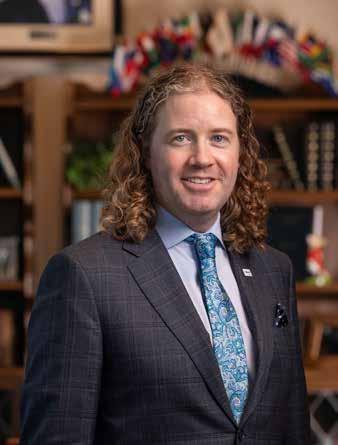
Sustainability and aquaculture
In the aquaculture segment with presentations on demand, Alltech’s Aquaculture Lead and CEO Alltech Coppens, Ronald Faber explored aquaculture’s sustainability agenda with four speakers. There is a push for more environmentally friendly food production solutions which is an exciting opportunity for the aqua industry. On the question “Can sustainability remains aquaculture’s unfair advantage”,
Karin van de Braak, Aquaculture Health Specialist, Sustainable Aquaculture Solutions (SAS) and Esther Luiten, Commercial Director, Aquaculture Stewardship Council (ASC), in their joint presentation said, “Yes, it can maintain its advantage but aquaculture must move from more to better. It needs to do in a different way, shift from eco-efficiency to eco-effectiveness.” They added that the industry is running out of resources and therefore there should be a synergy between being ecological and economical. Aquaculture sees that the right move is to reduce carbon footprint, but they say this is not enough. “It is not only to minimise footprint by increasing efficiency but also to optimise the positive ones. It is important to see things are connected in a complex system to be effective.” They added that industry has been focussing on disease per se but less on efficiency. There are also environmental and social costs of diseases.
Bjarne Hald Olsen, COO and Business and Development Manager, Billund Aquaculture, argued the case for land-based farming to meet the growing needs of the aquaculture industry, especially using recirculating aquaculture systems (RAS). Denmark based Billund Aquaculture is a pioneer in the development of RAS worldwide and is present in 20 countries.
In comparing the water consumption required in producing per kg of fish, energy use and carbon footprint with meat production, there is no doubt that aquaculture uses less. Olsen listed the advantages of RAS; minimum water usage, optimal temperature control, stable and predictable production, disease control, 100% control on fish escapes and faecal waste can be captured and converted into fertiliser. There is the climate and environmental control. RAS fulfils 12 out of 17 of UN’s Sustainable Development Goals (SDGs). Olsen added that today, consumers are very concerned on the environmental impact of aquaculture while in open sea cages, the salmon faces effects of climate changes, higher water temperatures, algae blooms in addition to parasite infestations.
Ben Lamberigts, Manager of Quality, Research and Nutrition at Alltech Coppens, offered his insights on nutrition for a sustainable future through the four pillars of fish nutrition: palatability, performance, pollution and planet. “It is a challenge that we have to solve before we can grow the aquaculture industry,” said Lamberigts. “But the industry is working on this, and we are doing a very good job. In fact, we have already lowered the fish in fish out (FIFO) factor since the 1990s. Still, we need more fishmeal alternatives.” While the global aquaculture production has achieved a 0.27 FIFO, Alltech Coppens even lowered the FIFO to 0.10, which means only 100g of wild-caught fish is needed to produce 1 kg of farmed fish.
Lamberigts emphasised, “No fish has a requirement for fishmeal or even a requirement for a specific raw material. They require essential nutrients, such as digestible protein, fat for energy, vitamins and minerals.” Alltech Coppens, has defined alternatives to fishmeal with these requirements; split them up into single metrics, to compare between each other and to fishmeal. This has been done in human food items with the nutrition score on food packaging. Nutritional scoring, as well as sustainability scoring, helps consumers compare between products and make the right decision. (Source: Tien Le@Alltech.com).
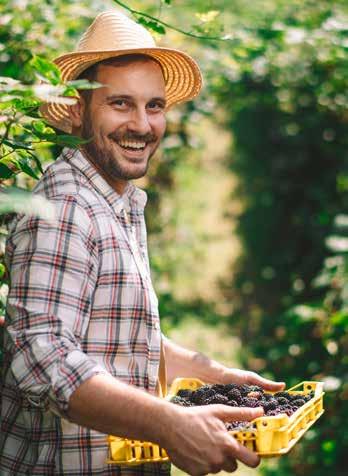
Our new consumer label is here to make responsible farming visible.
Find out more at
www.globalgap.org/ggnlabel
HATCH, the aquaculture tech venture capital company is known for its global accelerator programme investing in companies focused on sustainability improvements in the aquaculture value chain. The first instalment of the new programme called ‘Hatch Innovation Studio’ took place in Singapore from May 4 to June 11, 2021. The Innovation Studio SG 2021 focused on developing aquaculture and alternative seafood projects. It is supported by Startup SG, Enterprise Singapore.
Wayne Murphy, Co-Founder and Partner at Hatch, said, “Seafood consumption drives the growth of the aquaculture and alternative seafood in the region. With the rising populations, existing opportunities in the region will only grow further. We are looking for the best ideas to develop and scale into viable businesses to address the challenges in Asia.”
Hatch has been working closely with Enterprise Singapore to drive innovation since 2019. It is committed to supporting more talent from Singapore and the surrounding region to create a local pipeline of aquaculture and alternative seafood startups. In 2021, there are 11 companies, ranging from early-stage pre-commercial projects to companies that have raised seed funding. The studio is a part-time programme to help them develop their businesses and network with industry experts. The teams showcased their technologies to industry stakeholders and investors to explore potential collaborations at the Aquatech Pitch Day in June. A summary of the participating team is given below:
Singapore based The Agrata group uses recirculating aquaculture system (RAS) for a hatchery based, vertically integrated Scylla serrata (mud crab) production. The partner farming operations are on Riau Islands, Indonesia. Agrata, has secured funding in November 2020 and will commence operations in August 2021 and produce the first batch in January 2022.
Vietnam based TEPBAC has a platform of software and hardware IoT solutions for a more profitable and transparent shrimp farming. These include realtime monitoring of several parameters, such as pH, temperatures, salinity and oxygen. The next focus is pangasius farming.
Singapore based Universal Aquaculture (UniAqua) has an indoor high-density shrimp farm using proprietary Hybrid Biological Recirculation System (HBRS)-an energy saving water treatment system, developed from 6 years of research. Their inaugural 1,400m2 farm is expected to produce a tonne of vannamei shrimp per week. The target is to have farms close to markets, within Singapore and overseas, with partners.
Singapore based Protenga has scaled to commercial production in Johor, Malaysia with its data driven technology for insect meal production. In 2020, it raised USD1.6 million from a seed investment round. It has an insect-based shrimp additive product (ShrimProX). The market is feeds for petfood, livestock, marine shrimp and freshwater prawn.
Impacfat has cultured meat technology to produce cellbased fat (adipocytes) efficiently and sustainably from edible fish species to complement existing plant-based meat or muscle-dominant cultured meat to improve its taste, texture, appearance and nutritional value.
Australia and Philippines based COAST 4C have a social enterprise focusing on seaweed production and includes a fishing net buy-back scheme. The mission is to build vibrant and resilient blue economies in marginalised coastal areas that benefit the 4Cs: Communities, Conservation, Commerce and Climate. Over the next 24 months, it will be seeking seed funding.
Singapore’s Aquaculture Innovation Centre or AIC is working on a vaccine to combat iridovirus in fish; a multivalent oral vaccine using algae as the carrier for top coating on feed for less than 3g fish. The initial target will be local farms, followed by farms in China and Southeast Asia. Funding is required initially for the pilot plant and commercial validation.
Indonesia based Minapoli, a startup for information and business in fisheries and aquaculture wishes to integrate all segments in Indonesia’s fisheries and aquaculture to contribute to its development. It is the first marketplace for aquaculture. The coverage in Indonesia is over 47 cities in 18 provinces. A target is to expand into the Asia Pacific region.
Singapore based Luminis Water Technologies provides proprietary water sampling and analysis equipment, molecular diagnostics, rapid in-the-field pathogen ID, and advanced AI microbiome analytics. The business model is subscription-based and consulting/analytical project services.
RAS Aquaculture is a farm technology company with production systems, hardware, software to scale up sustainable and efficient indoor aquaculture of crustaceans and fish using a combination of closed loop recirculating systems and biofloc. The business model is subscription-based and consulting/analytical project services. It expects to scale up by 2023 with seed funding.
Through biotechnology, TeOra designs proprietary peptides for immunostimulation and disease prevention. These can target multiple diseases and can be done 10 times faster and 100 times cheaper than traditional methods. The startup is initially targeting white spot syndrome virus (WSSV) prevention in shrimp. Seed funding required is USD1 million to upscale. It also needs strategic partnerships to conduct commercial trials.
Thailand’s First Sustainability-Linked Bond
Thai Union Group PCL. The world’s leading seafood processor, has successfully priced a THB 5 billion seven-year senior, unsecured Sustainability Linked Bond (SLB) for institutional investors. This is the first SLB launched in Thailand and follows the launch of Thai Union’s inaugural Sustainability Linked Loan (SLL) in February 2021, further demonstrating the company’s ongoing commitment to its ESG principles. It is another significant step forward for Blue Finance— financing for projects benefiting oceans—and the seafood industry as a whole. Thai Union’s SLB is not only the first in Thailand but also the first globally to introduce step-up and/ or step-down facilities related to the achievement of Sustainability Performance Targets (SPTs). These targets include remaining in the Dow Jones Sustainability Index (DJSI) Emerging Markets and ranking in the top 10 companies for the DJSI Food Products Industry Index; reducing Thai Union’s Scope 1 and Scope 2 carbon emissions from manufacturing operations by 4% annually (carbon intensity); and increasing the monitoring and surveillance of Thai
“Sustainability is central to our operations and business philosophy and we have committed to a policy of healthy living, healthy oceans. This type of Blue Financing represents another way we can now work with our partners in the financial community on products that help ensure we continue to preserve the oceans that are vital not only to our business, but also the planet while providing healthy and nutritious products that health-conscious consumers globally are demanding,” said Thiraphong Chansiri, President and CEO of Thai Union.
Union’s wild-caught tuna supply chains, whether electronically and/or through the use of human observers at sea. Investors in the bond will be entitled to a lower or higher coupon should the company achieve or fail to achieve these SPTs in 2023 and 2026. The company’s Sustainability Linked Financing Framework is externally verified by Sustainalytics to ensure alignment with international best practices and standards. www. thaiunion.com
New logo and new brand identity
Akiolis has announced several changes in 2021, in line with the work to date, both its raison d'être and strategy. These changes translate into the affirmation of its role as a “Révélateur de valeur” (Value Developer), within a chain that starts with the sourcing of animal materials and continues with the production of the fats and proteins used in formulations. “We are investing heavily in the quality of our products and services. Now, we want to go even further and prove every day that we are “Révélateurs de valeur”, said Sophie Grégoire, Communication Manager. “More than never, the attention focuses on quality of end products and listening to the needs of customers and customers’ clients.”
Akiolis has changed its logo. “Our new logo reflects this ambition and our commitment. The business is at the heart of sustainable development and the circular economy. This approach is first and foremost for our customers, but it is also for ensuring a better everyday life and a better planet. We are aiming to transform the end of a life cycle into the beginning of a new life, even more valuable,” said Grégoire.
Akiolis specialises in rendering activities and the transformation of animal by-products into highvalue proteins and fats. Through partnerships it has access to a vast array of animal materials and through industrial processes valorises these for pet food and animal nutrition, aquafeed and others. It has created 7 new brands for its ingredients. These brands replace the old brands Prossential and Soleval.
The company said that this is another sign of the importance placed on the image and consistency of their products. Each brand carries specific promises that meet the current or future needs of users in each market. "We are fortunate to be the subsidiary of a group (Tessenderlo Group) that has a real industrial vision in the long term. Investing in the future does not scare us!" - Gilles Cogny, Akiolis Executive Vice President.
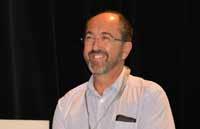
For aquaculture, the products are under the brand Hydrofaks by Akiolis. To meet performance challenges for aquatic species, this brand, which features the Akiolis guarantee, gathers the ingredients of current ranges, the latest innovations under development, and the associated services. www.akiolis.com

TIFSS 2021 Reschedule to December 2-4
Due to the ongoing COVID-19 situation and the Level 3 epidemic alert locally in Taiwan, in consideration of the health and safety of all visitors and exhibitors and in consultation with relevant stakeholders, the Taiwan Int'l Fisheries and Seafood Show 2021 (TIFSS 2021), originally scheduled to be held from September 2 to 4 this year, has been moved to December 2-4 at Taipei Nangang Exhibition Center, Hall 2. The virtual exhibition, the TIFSS online 2021, will be simultaneously rescheduled to December 2-31 for global exhibitors who might be unable to take a business trip to Taiwan under the epidemic.
TIFSS is Taiwan’s first tailored exhibition for fisheries industry. This year, four major themes will be presented in the exhibition, including “Ocean Fishery & Fishing Equipment”, “Smart Aquaculture & Fish Seeding Technology”, “Seafood & Valueadded Process”, and “Fishing Tackle & Water Equipment”; meanwhile, TIFSS online 2021, will have online services including virtual booth display, meeting scheduling and messaging, to welcome overseas exhibitors and visitors to explore business opportunities. The TIFSS virtual show and hybrid (online plus offline) booth are still available for international exhibitors to join. Email: taiwanfishery@taitra.org.tw or sonya_chaw@ myexhibition.com.tw Web: https://www.taiwanfishery.com
Updates on EAS and WAS events
AQUACULTURE EUROPE 2021 in Madeira, Portugal, October 4-7 is an In-Person event! The full conference program grid is now online. The deadline for submitting abstracts for E-poster presentation remains as August 28. The Covid-19 restriction are updated weekly. Organisers ask participants to continue submitting abstracts and reserving booths (mario@marevent. com) Web:www.aquaeas.org
WORLD AQUACULTURE 2021 Merida, Mexico November 8-12, 2021. The international event organised by the World Aquaculture Society is combining the Latin American & Caribbean Aquaculture 2021 event with the international WAS event. It is now time to submit abstract. Booth booking (mario@marevent.com). Web: www.was.org Email:info@ marevent.com
WORLD AQUACULTURE 2020 Singapore December 5-8, 2021. There is still time to submit abstracts and to book a booth in the exhibition. Email: info@marevent.com
AQUACULTURE AFRICA 2021 Alexandria, Egypt December 11-14. AFRAQ21 is an In-Person meeting in Alexandria after approval of the Ministry. Submission of abstracts and full papers has now been extended to 30 September. Organisers urge participants to get vaccinated. Registration is open. Complete the online registration form at www.was.org. Book a booth (Email: mario@marevent.com). Email: worldaqua@was.org or africanchapter@was.org
2021
August 11-14
Aquaculture America 2021 San Antonio, Texas
www.was.org
August 18-20
TARS 2021: Shrimp Aquaculture VIRTUAL
www.tarsaquaculture.com
August 23-27
Annual Practical Short Course on Aquaculture Feed Extrusion, Nutrition and Feed Management ONLINE
http://tx.ag/extrusion
September 14-16
SPACE 2021 www.space.fr
October 4-7
Aquaculture Europe (AE2021) Madeira, Portugal
www.aquaeas.org
October 13-15
Aquaculture Vietnam Can Tho City
www.aquafisheriesexpo.com/vietnam
November 8-12
World Aquaculture 2021 Merida, Mexico
www.was.org
November 24-26
Aquatica Asia Tangerang, Indonesia
https://aquaticaasia.com
December 5-8
World Aquaculture 2020 Singapore
www.was.org
December 11-14
African Aquaculture 2021 Alexandria, Egypt
www.was.org

The Aquaculture Roundtable Series (TARS) 2021 will be from August 18-20 and focus on Shrimp: Markets • Margins • Productivity. The three-day meeting from SGT 2pm to 6.30pm (GMT+8) will address key issues impacting Asia’s farmed shrimp industry today and explore opportunities for the future. The pandemic has brought new market challenges, namely a shift in demand, a shift in supply, disruptions along the supply chain and changes in market preferences. Diseases continue to impact productivity. Decreasing survival rates have led to higher cost of production and lower margins. A higher supply from Asia and Latin America have brought down prices and are squeezing margins.
“During these challenging two years, we see how shrimp markets and consumer perceptions are influencing industry trends in Asia. While we seek ways to improve production efficiency, it is important to draw the industry’s attention to sustainability demands to build consumer confidence in Asian shrimp. At the same time, farmers must move to adopt innovations and big data analyses to build a predictable and consistent industry,” says Dr Zuridah Merican, conference chair and editor of Aqua Culture Asia Pacific magazine. TARS 2021 will bring industry stakeholders together to address these critical issues and seek solutions with market-led production while using innovative technologies to increase production efficiency. Discussions will focus on building consumer confidence in farmed shrimp from Asia and convince markets on its sustainability agenda.
The TARS 2021 program includes 7 plenary and Q&A panel sessions with invited industry leaders. Not to be missed is the Hard Talk with 3 business leaders in their respective fields (shrimp feed production, farming and functional additive supplier) who will offer their perspectives on “Why is there a trust deficit among Asian farmers on functional feeds?”
The virtual platform will feature live streaming of the full conference sessions; on demand content; live Q&A sessions and chats; sponsors’ hall; and networking and matchmaking opportunities.
“Although TARS 2021 will be a virtual edition, attendees can expect the same quality and output as previous inperson events, including networking opportunities,” Merican reiterates.
PROGRAM DETAILS
SHRIMP: Markets • Margins • Productivity 18 - 20 August 2021 2.00pm to 6.30pm Singapore/Beijing (GMT+8) 1.00pm to 5.30pm Bangkok 11.30am to 4.00pm Chennai
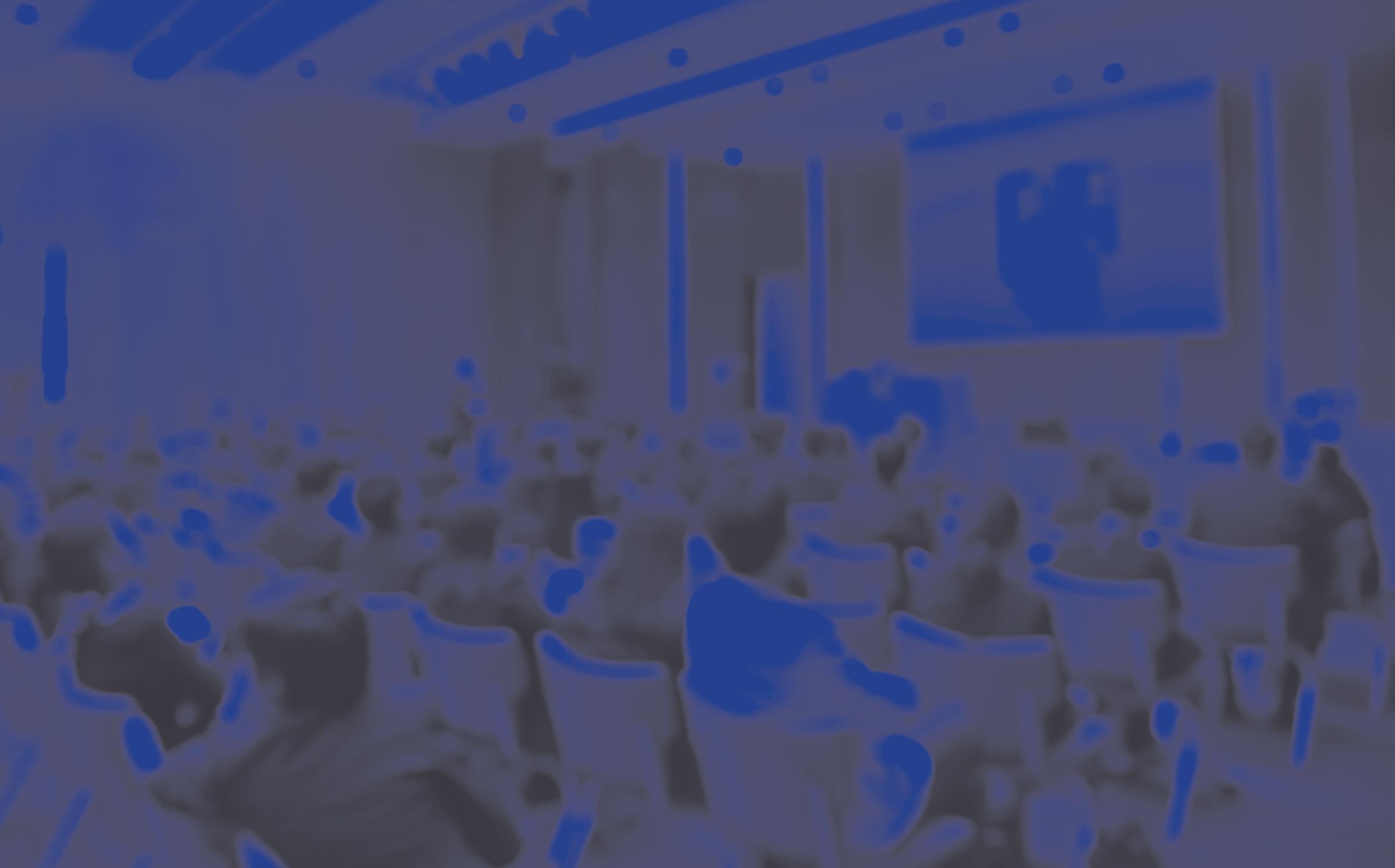
REGISTER NOW
Industry Sponsors:
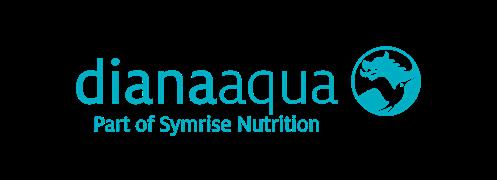
�������� Supporting Media
워드마크 ����������������� �����������������
Organised by:

In these pandemic years, there has been a demand shift and supply shift. We look at changing consumer preferences in the EU, China and US. What is the market outlook and trends in 2022? We follow with a Q&A panel session moderated by Ronnie Tan with ChingLing Tanco, Philippines and S Santhana Krishnan, India to explore how can Asian producers better position products in these markets. • An EU Market Perspective of Asian Shrimp Production-
Willem van der Pijl, Shrimp Insights, The Netherlands • Some Perspectives on China’s Changing Shrimp
Demand-Lee Ho, Zhanjiang Gangyang Aquatic Co Ltd,
PR China • U.S. Shrimp Market: Outlook and Trends -Angel Rubio,
Urner Barry USA.
Willem van der Pijl Lee Ho Angel Rubio
ChingLing Tanco Ronnie Tan S Santhana Krishnan
Sustainability – Building Consumer Confidence
Consumers are demanding that producers work with sustainability in mind. While the Seaspiracy documentary demonstrated the vulnerability of aquaculture in general, we need to build consumer confidence in Asian shrimp. Moderator Ronnie Tan and industry players, Han Han, PR China and Haris Muhtadi will discuss current challenges. • Emerging Sustainability Themes in Aquaculture-Marcela
Salazar, Benchmark Genetics, Colombia • Marine Microalgae Omega-3s Enable Sustainable
Growth of the Shrimp Industry-Fuci Guo, Corbion Algae
Ingredients, Malaysia • Adding Value to Side-Stream Products: A Concrete Case for Sustainable Shrimp-Vincent Fournier, Diana-Aqua,
France
Marcela Salazar Fuci Guo Vincent Fournier How sustainable is the Asian intensive model compared to LATAM’s extensive model? How can Asia augment its weaknesses and build on its strengths to meet market demand? Is bringing back black tiger shrimp farming a blunder? Moderated by Patrick Sorgeloos, Belgium and joined by Tung Hoang, Australia and Darryl E. Jory, USA. • Cultured Shrimp in 2030: Low Density Models of the
Americas or the More Intensive Models of Asia-Robins
McIntosh, Charoen Pokphand Foods, Thailand • Bringing Back Black Tiger – Better or Blunder-Manoj M
Sharma, Mayank Aquaculture, India
Robins McIntosh Manoj Sharma Patrick Sorgeloos
Tung Hoang Darryl E. Jory
Margin Optimisation
Safeguarding margins and costs of production is a perpetual challenge, more so with lower offer prices in recent years. Romi Novriadi, Indonesia will moderate the Q&A panel with industry players Soraphat Panakorn, Thailand and Sreeram Raavi, India. • Getting It Right: Microbial Management in Shrimp Hatchery and Ponds-Benedict Standen, Biomin GmbH, Austria • Optimisation of Feed Margins: Extracting Value out of Feed
Proteins-Hervé Lucien-Brun, Jefo Nutrition, Canada • The Potential for Technology, Modelling, Data Analyses and Artificial Intelligence to Improve Productivity and
Sustainability of Aquaculture in Asia-Dominique P Bureau,
University of Guelph, Canada
Benedict Standen Hervé Lucien-Brun Dominique P Bureau
Lower survival rates have increased costs of production from diseases such as EMS/AHPND, WFD, EHP and muscle necrosis. There are also newer possibilities with digitalising and real-time monitoring to learn to manage disease trigger points. Olivier Decamp, Thailand will moderate the session, with Ravikumar Bangarusamy, India and Kallaya Sritunyalucksana-Dangtip, Thailand. • Science in Shrimp Farming and Recent Innovations in
Production in Vietnam - Loc Huu Tran, ShrimpVet Lab,
Minh Phu AquaMekong, Vietnam • Precision Nutrition and Health Solutions for Higher
Productivity - Daranee Seguin, DSM Nutritional Products,
Thailand • Opportunities in Real-Time Monitoring and Digital Farming
Tools – What are the Key Elements in Health Management for Farmers and the Industry? - Ralf Onken, Fai Farms,
Norway
Loc Huu Tran Daranee Seguin Ralf Onken
Olivier Decamp Kallaya Sritunyalucksana- Dangtip
Ravikumar Bangarusamy
Weak Links in the Supply Chain
In this multidisciplinary shrimp farming industry, how can industry augment the weak links to achieve margin optimisation and higher productivity? Here, three areas of weak links are covered by speakers. Moderator Ravi Kumar Yellanki, India will lead the conversation, joined by Dylan Howell, Singapore and Christopher Co, Philippines. • Bridging the Gap: Genetic and Hatchery Considerations for a Maturing Shrimp Industry - Steve M Arce, Hendrix
Genetics/Kona Bay, USA • Functional Feed Additives in Shrimp Farming to Reduce the
Impact from Diseases: Are They Really Worth it? - Martin
Guerin, Adisseo Asia Pacific Pte Ltd, Singapore • Challenges and Opportunities in Reducing Greenhouse
Gas Emissions from Indonesia’s Shrimp Aquaculture,
Ilman Muhammad, Yayasan Konservasi Alam Nusantara,
Indonesia
Steve Arce Martin Guerin Ilman Muhammad Financing continues to be a bottleneck. How can the industry attract investments and reduce risks? Investors look for credibility, predictability and risk mitigation. Integrating big data along the supply chain is a foundation for predictability. Moderator Anton Immink, with Jeremy Ong, Singapore will lead discussions on how to improve investor confidence in shrimp aquaculture in Asia. • Unlocking Investment: Consistency, Record Keeping, and
Risk Mitigation-Alexander Farthing, Alune Aquaculture,
Singapore • Production Predictability with AI and Big Data in Asia’s
Shrimp Farms - Chelsea Andrews, XpertSea, Canada • How can Real Time Monitoring, Automation and Industrial
Revolution 4.0 Improve Shrimp Aquaculture?-Aryo
Wiryawan, JALA Tech, Indonesia
Alexander Farthing Chelsea Andrews Aryo Wiryawan
Anton Immink Jeremy Ong
HARD TALK with Business Leaders
Moderator Ronnie Tan will pose hard-hitting questions on “Why is there a trust deficit among Asian farmers on functional feeds?” to three business leaders in their respective fields, i.e. shrimp feed production, farming and functional additive supplier.
Panellists for Hard Talk
Samson Li CEO, Grobest, Hong Kong SAR Guntur Mallarangeng, CEO, Dewi Laut Aquaculture, Indonesia
Dr Peter Cotteau, Business Unit Director, Adisseo, Belgium
The forte of TARS, the Interactive Breakout Roundtable sessions will continue in virtual rooms. With the focus on “Building Alliances to Improve the Supply Chain and Traceability,” stakeholders will explore ways to build alliances, collaborate and integrate with each other. Participants will join a virtual room of one of these groups.
Group 1: Feedmillers & Farmers
Group 2: Genetics, Hatchery, and Farmers




